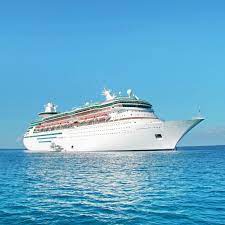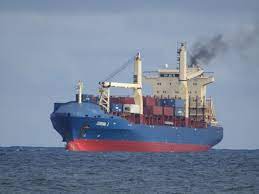The most important insurance for a ship is typically hull and machinery insurance, also known as hull insurance. This type of insurance provides coverage for physical damage or loss to the ship itself, including its hull, machinery, and equipment. It is crucial for shipowners and operators because it helps protect their significant investment in the vessel.

Hull and machinery insurance can cover various risks, including:
Collision: Coverage for damages resulting from collisions with other vessels, objects, or underwater hazards.

Fire and Explosion: Protection against damage caused by fires or explosions on the ship.
Grounding and Stranding: Coverage for damages resulting from the ship running aground or becoming stranded.
Weather-Related Damage: Protection against damage caused by adverse weather conditions such as storms, hurricanes, and lightning strikes.

Theft and Vandalism: Coverage for theft of ship equipment or vandalism while the ship is docked or anchored.

Sinking or Capsizing: Protection in case the ship sinks or capsizes, leading to significant damage or loss.
Salvage and Towage: Coverage for the cost of salvaging a ship in distress or the expense of towing a damaged vessel to a safe harbor.

General Average: Coverage for expenses incurred to protect a ship and its cargo during a common maritime peril, with costs shared among the shipowner and cargo owners.
It’s important to note that shipowners often customize their insurance coverage based on their specific needs and the nature of their operations. Additionally, marine insurance can be complex, with various policies and endorsements available, so shipowners typically work closely with marine insurance brokers to tailor coverage to their requirements.

In addition to hull and machinery insurance, shipowners may also consider other types of coverage such as protection and indemnity (P&I) insurance, cargo insurance, and liability insurance to provide comprehensive protection for their maritime assets and operations.
Hull and Machinery Insurance (H&M): This is the core insurance for the ship itself. It covers physical damage or loss to the vessel, including the hull, machinery, equipment, and other essential components. Shipowners typically insure their vessels for their market or replacement value.

Protection and Indemnity (P&I) Insurance: P&I insurance is crucial for shipowners as it covers third-party liabilities that may arise from operating a vessel. This includes liability for damage to other ships, property, cargo, pollution, and injuries to crew or passengers. P&I clubs are often used to provide this type of coverage, and it goes beyond traditional H&M insurance.
Cargo Insurance: This type of insurance covers the cargo being transported by the ship. It protects cargo owners against loss or damage to their goods during transit, whether due to accidents, theft, or other covered perils. Cargo insurance can be purchased by the cargo owner or the shipowner, depending on the terms of the shipping contract.
Liability Insurance: In addition to P&I insurance, shipowners may consider other liability coverage, such as collision liability insurance, which specifically covers liabilities arising from collisions with other vessels. It provides additional protection beyond the standard P&I coverage.

War Risk Insurance: This insurance covers damage or loss caused by warlike actions, acts of terrorism, or other political perils. It is essential for vessels operating in high-risk areas or during times of geopolitical instability.
Kidnap and Ransom Insurance: In regions with a higher risk of piracy or kidnapping of crew members, shipowners may consider this type of insurance. It covers ransom payments, negotiation expenses, and other costs associated with resolving such incidents.
Loss of Hire Insurance: This coverage compensates the shipowner for lost income when a vessel is out of service due to damages covered by the H&M insurance. It helps mitigate the financial impact of downtime.

Freight Demurrage and Defense (FD&D) Insurance: FD&D insurance covers legal costs associated with disputes arising from shipping contracts. It also provides advice and assistance in handling contract disputes and other legal matters.
Builder’s Risk Insurance: Shipbuilders and owners of newly constructed vessels often obtain this coverage to protect against loss or damage during the construction or testing phases.
Marine Pollution Insurance: This coverage addresses liabilities related to pollution caused by the ship, such as oil spills. It can help cover the costs of cleanup and environmental damage.

It’s essential for shipowners to work closely with marine insurance brokers and underwriters who specialize in maritime insurance to tailor coverage to their specific needs. The choice of insurance types and coverage limits can vary widely depending on factors such as the type of vessel, its intended use, the trade routes, and the risk profile associated with its operation. Ultimately, the goal is to provide comprehensive protection for the ship, cargo, crew, and mitigate potential financial losses from various maritime risks.


